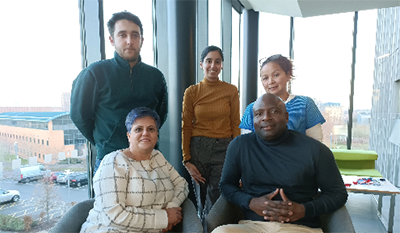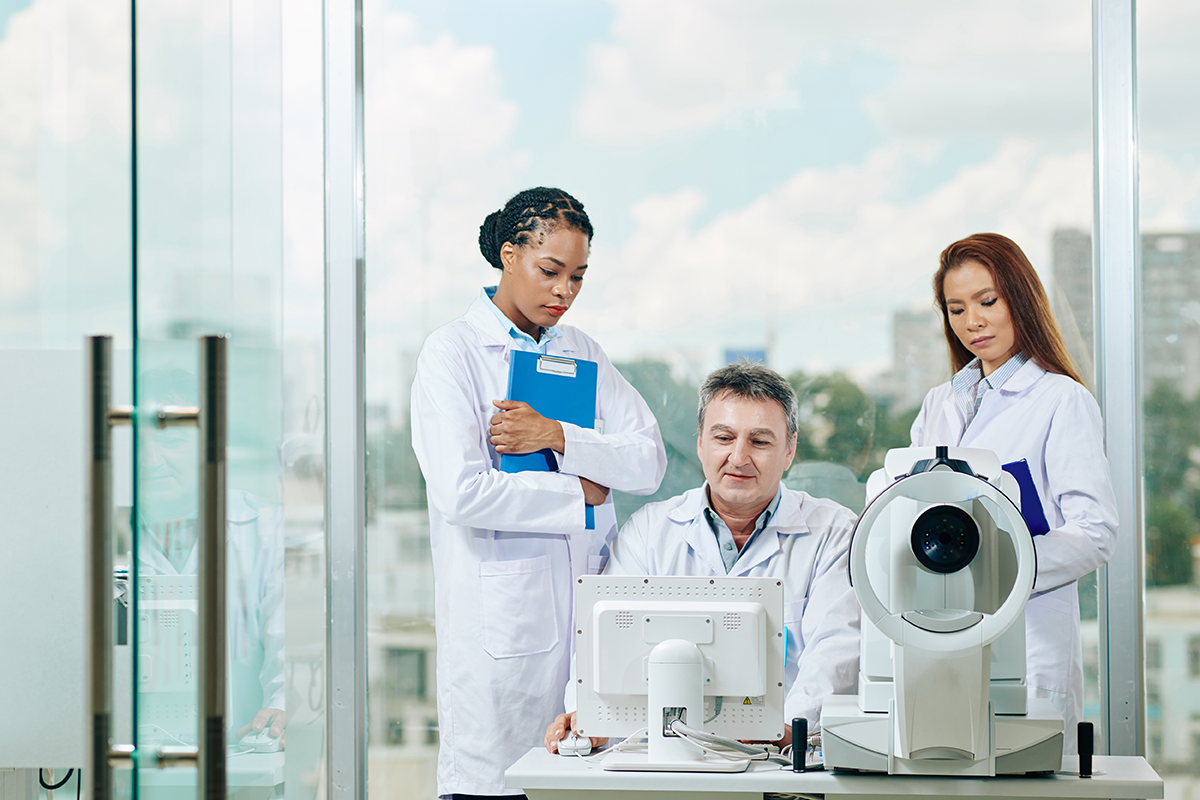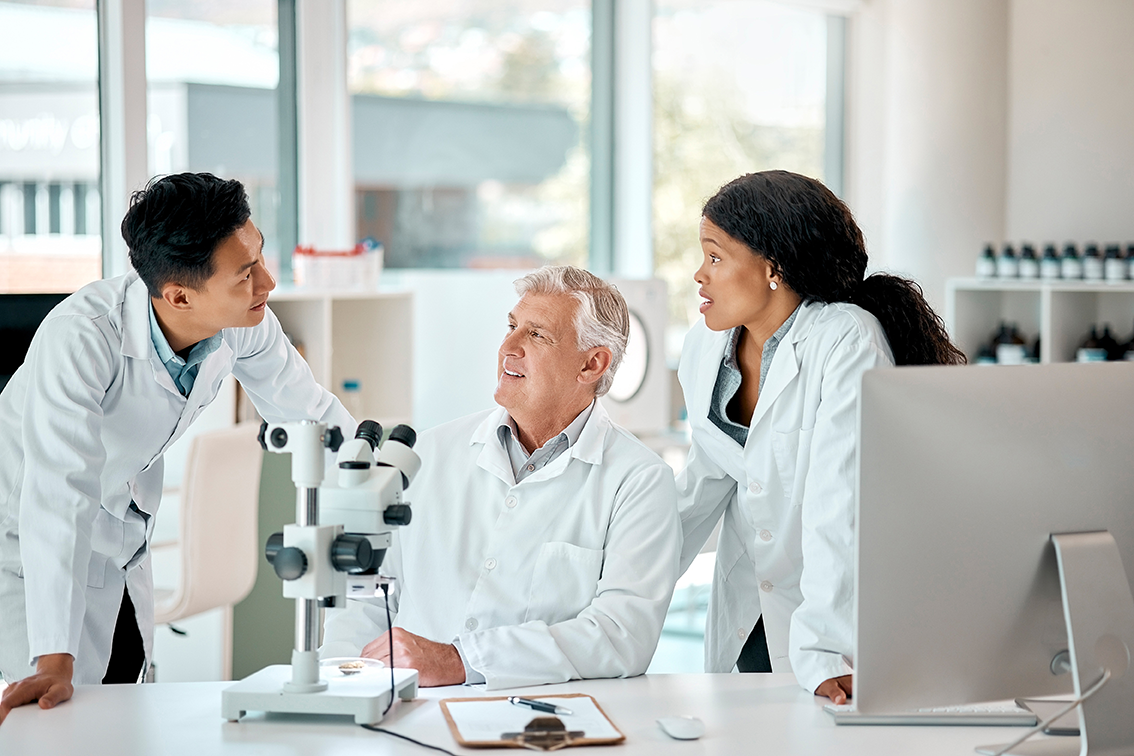You have no items in your shopping basket.
Challenges of clinical observations in high-pressure healthcare environments
Navigating the storm: Clinical observations in high-pressure UK health and social care environments
Dr Richard Dune
07-03-2024
UK health and social care settings, emergency rooms, intensive care units, and pandemic response settings present formidable challenges. These environments demand clinical acumen and the ability to maintain high standards of care under pressure.
In this blog, Dr Richard Dune explores the unique challenges healthcare professionals face in these settings, offering strategies for resilience and excellence in clinical observations.
The challenges unveiled
Healthcare professionals in high-pressure environments encounter a myriad of challenges:
- Rapid decision-making - The need for swift, accurate clinical judgments can be overwhelming.
- Emotional and physical fatigue - Long hours and the emotional toll of critical care can impact performance.
- Resource limitations - During peaks in demand, such as pandemics, resources can be stretched thin.
Key fact - A survey revealed that over 60% of healthcare workers in ICU settings experience significant stress levels, affecting their ability to perform clinical observations.

Image by Wavebreakmedia via Envato Elements

Image by YuriArcursPeopleimages via Envato Elements
Key definitions
- Clinical observations - The systematic monitoring of vital signs and patient responses to assess their health status.
- High-pressure environments - Healthcare settings characterised by critical patient care needs and urgent operational tempos, such as ERs, ICUs, and during health crises.
Legislative and regulatory framework
In the UK, the Health and Social Care Act 2008, alongside guidance from the Care Quality Commission (CQC) and National Institute for Health and Care Excellence (NICE), sets the standards for clinical observations, even in high-pressure scenarios.

Image by monkeybusiness via Envato Elements

Image by Wavebreakmedia via Envato Elements
Strategies for excellence under pressure
Prioritising critical observations
Focus on the most critical observations to ensure timely interventions, employing triage principles to manage workload effectively.
Embracing technology
Leverage technology for more efficient monitoring and data management. Tools like digital monitoring systems can offer real-time insights and free up time for direct patient care.
Continuous training
Regular simulation-based training can prepare staff for the realities of high-pressure environments, enhancing their confidence and competency.
The role of teamwork and leadership
The COVID-19 pandemic has underscored the importance of adaptability, resilience, and innovation in healthcare. Key lessons include:
- The value of preparedness - Early planning and scalable strategies can significantly impact response effectiveness.
- The power of flexibility - Adapting to changing scenarios, from treatment protocols to visitor policies, is crucial.
- Community and global collaboration - Sharing knowledge and resources nationally and globally enhances collective response capabilities.

Image by Image-Source via Envato Elements

Image by luismanuelm via Envato Elements
Lessons from recent healthcare crises
The COVID-19 pandemic has underscored the importance of adaptability, resilience, and innovation in healthcare. Key lessons include:
- The value of preparedness - Early planning and scalable strategies can significantly impact response effectiveness.
- The power of flexibility - Adapting to changing scenarios, from treatment protocols to visitor policies, is crucial.
- Community and global collaboration - Sharing knowledge and resources nationally and globally enhances collective response capabilities.
Recommendations
- Invest in technology - Adopt and integrate technological solutions that streamline clinical observations and data management.
- Foster a culture of continuous learning - Encourage regular training and professional development to build confidence and skills for high-pressure situations.
- Promote wellness and resilience - Implement support systems for staff wellbeing to combat fatigue and stress.
- Strengthen team dynamics - Regular team-building exercises and clear communication protocols can enhance team performance under pressure.
- Learn from experience - Regularly review and incorporate lessons learned from past crises to improve future responses.

Image by DC_Studio via Envato Elements

Image by DC_Studio via Envato Elements
Conclusion
The challenges of conducting clinical observations in high-pressure UK health and social care settings are formidable but manageable. Through strategic planning, technological integration, continuous training, and a focus on teamwork and leadership, healthcare professionals can navigate these challenges effectively. The lessons learned from recent healthcare crises provide valuable insights that can shape more resilient and adapta
Elevate your readiness and resilience in high-pressure healthcare environments. Explore our training programmes to enhance clinical observation skills, leadership, and team dynamics. Join us in our commitment to excellence in patient care, even in the face of adversity.
UK health and social care settings, emergency rooms, intensive care units, and pandemic response settings present formidable challenges. These environments demand clinical acumen and the ability to maintain high standards of care under pressure.
In this blog, Dr Richard Dune explores the unique challenges healthcare professionals face in these settings, offering strategies for resilience and excellence in clinical observations.
The challenges unveiled

Image by Wavebreakmedia via Envato Elements
Healthcare professionals in high-pressure environments encounter a myriad of challenges:
- Rapid decision-making - The need for swift, accurate clinical judgments can be overwhelming.
- Emotional and physical fatigue - Long hours and the emotional toll of critical care can impact performance.
- Resource limitations - During peaks in demand, such as pandemics, resources can be stretched thin.
Key fact - A survey revealed that over 60% of healthcare workers in ICU settings experience significant stress levels, affecting their ability to perform clinical observations.
Key definitions

Image by YuriArcursPeopleimages via Envato Elements
- Clinical observations - The systematic monitoring of vital signs and patient responses to assess their health status.
- High-pressure environments - Healthcare settings characterised by critical patient care needs and urgent operational tempos, such as ERs, ICUs, and during health crises.
Legislative and regulatory framework

Image by monkeybusiness via Envato Elements
In the UK, the Health and Social Care Act 2008, alongside guidance from the Care Quality Commission (CQC) and National Institute for Health and Care Excellence (NICE), sets the standards for clinical observations, even in high-pressure scenarios.
Strategies for excellence under pressure

Image by Wavebreakmedia via Envato Elements
Prioritising critical observations
Focus on the most critical observations to ensure timely interventions, employing triage principles to manage workload effectively.
Embracing technology
Leverage technology for more efficient monitoring and data management. Tools like digital monitoring systems can offer real-time insights and free up time for direct patient care.
Continuous training
Regular simulation-based training can prepare staff for the realities of high-pressure environments, enhancing their confidence and competency.
The role of teamwork and leadership

Image by Image-Source via Envato Elements
The COVID-19 pandemic has underscored the importance of adaptability, resilience, and innovation in healthcare. Key lessons include:
- The value of preparedness - Early planning and scalable strategies can significantly impact response effectiveness.
- The power of flexibility - Adapting to changing scenarios, from treatment protocols to visitor policies, is crucial.
- Community and global collaboration - Sharing knowledge and resources nationally and globally enhances collective response capabilities.
Lessons from recent healthcare crises

Image by luismanuelm via Envato Elements
The COVID-19 pandemic has underscored the importance of adaptability, resilience, and innovation in healthcare. Key lessons include:
- The value of preparedness - Early planning and scalable strategies can significantly impact response effectiveness.
- The power of flexibility - Adapting to changing scenarios, from treatment protocols to visitor policies, is crucial.
- Community and global collaboration - Sharing knowledge and resources nationally and globally enhances collective response capabilities.
Recommendations

Image by DC_Studio via Envato Elements
- Invest in technology - Adopt and integrate technological solutions that streamline clinical observations and data management.
- Foster a culture of continuous learning - Encourage regular training and professional development to build confidence and skills for high-pressure situations.
- Promote wellness and resilience - Implement support systems for staff wellbeing to combat fatigue and stress.
- Strengthen team dynamics - Regular team-building exercises and clear communication protocols can enhance team performance under pressure.
- Learn from experience - Regularly review and incorporate lessons learned from past crises to improve future responses.
Conclusion

Image by DC_Studio via Envato Elements
The challenges of conducting clinical observations in high-pressure UK health and social care settings are formidable but manageable. Through strategic planning, technological integration, continuous training, and a focus on teamwork and leadership, healthcare professionals can navigate these challenges effectively. The lessons learned from recent healthcare crises provide valuable insights that can shape more resilient and adapta
Elevate your readiness and resilience in high-pressure healthcare environments. Explore our training programmes to enhance clinical observation skills, leadership, and team dynamics. Join us in our commitment to excellence in patient care, even in the face of adversity.
Related blog articles
View allRelated blog articles
View allAbout The Mandatory Training Group
The Mandatory Training Group is one of the leading UK providers of CPDUK-accredited statutory and mandatory training, continuing professional development (CPD) courses, eLearning software and workforce development solutions for all sectors.
By making things simple and designing interactive e-learning content, we can provide meaningful training programs at all levels and enhance the capacity and resilience of individuals and organisations.
Click here to see our wide range of accredited clinical skills courses and training programmes.

About The Mandatory Training Group

The Mandatory Training Group is one of the leading UK providers of CPDUK-accredited statutory and mandatory training, continuing professional development (CPD) courses, eLearning software and workforce development solutions for all sectors.
By making things simple and designing interactive e-learning content, we can provide meaningful training programs at all levels and enhance the capacity and resilience of individuals and organisations.





